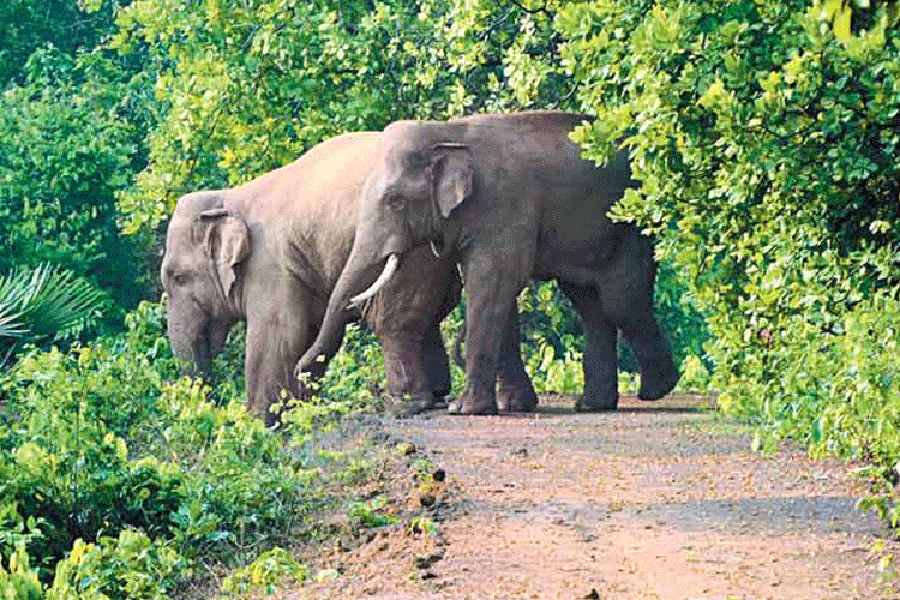The Odisha forest department is planning to tag radio collars on elephants to keep track of the movement of herds, taking a leaf out of Karnataka and Tamil Nadu government’s book.
With this, the department hopes to reduce the rising elephant-human conflict cases.
Principal conservator of forest and chief wildlife warden, S.K. Popli told The Telegraph: “Tagging the radio collar on the elephants has been a success in Karnataka and Tamil Nadu. and it has yielded desired results. In order to implement this, we have signed an MoU with the Asian Nature Conservation Foundation and the Institute of Physics. Because of Covid, the process has been delayed. We will start the tagging of collars after the monsoon. Probably we will start it in October.”
Popli said: “In a pilot scheme, three elephants will be tagged with radio collars. It will either be introduced in Dhenkanal or Angul forest range in the state. We are yet to take a final call on the issue. The experts will also decide whether the radio collar will be fitted on the tusker or of a particular female in the group. The radio collars will be fitted on the neck. Through the radio collar, our officials will be able to monitor the movement of herds through real-time data observation feedback.
“Once the pilot scheme is successful, it will be extended to other parts of the state later.”
In the last fortnight two elephants were mowed down by a train in Keonjhar and two elderly people were trampled to death in Nabarangpur.
“We are worried about the rising conflict. We are also taking the help of volunteers through our Gajasathi (Elephants’ Friend) to do more interface with the locals. Under this scheme, we have aimed to bring 2000 villages. So far 12,000 villages have been covered under the scheme.
“Under this scheme, five youths from each village are appointed as Gajasathi and they also help the department in giving information about the movement of herds in their areas,” he said.
As per the state government reports, at least 80 elephants die every year in the state which has lost as many as 935 of these pachyderms between 2011-12 and 2021-22. It had raised serious questions about the state’s elephant conservation plan.
The highest number ofelephant deaths (86) was reported in 2021.
According to the Assembly reports, out of 935 pachyderms killed during the period (2011-12 to 2021-22) 141 elephants died in accidents and 135 died due to electrocution. Similarly, 307 elephants died due to diseases.
Poachers killed as many as 48 elephants while 119 died of natural causes. The reasons for the death of another 131 elephants are yet to be ascertained.
Besides, out of 741 elephant electrocution deaths reported in the country in 10 yearstill December 2020, a maximum of 133 was reported from Odisha.










